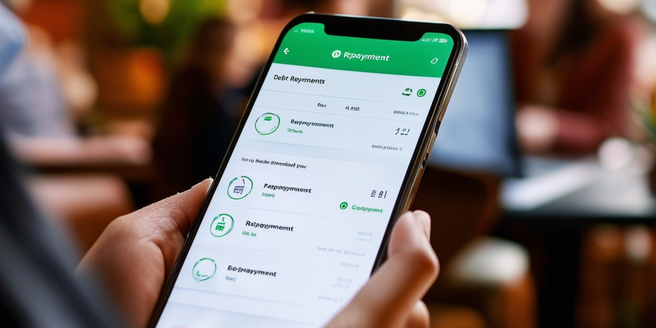
Understanding the Scope of Your Debt
Understanding the scope of your debt is the first crucial step towards managing it effectively. Start by listing all your outstanding debts, including credit cards, loans, and any other liabilities. Make sure to be thorough and include even the smallest amounts. Accurate information is key to creating an effective plan. Note down the interest rates, minimum payments, and due dates. This comprehensive overview will help you visualize the total amount owed and prioritize which debts to tackle first. Remember, knowing the full extent of your financial obligations is empowering and sets the stage for a successful debt management plan.
Setting Realistic Financial Goals
Setting realistic financial goals is key to achieving long-term success in managing debt. Begin by assessing your current financial situation, including income, expenses, and savings. Make sure to review your credit report to get a full picture of your financial health. Keep in mind that having a comprehensive understanding of your finances will make goal-setting more straightforward. Define clear, achievable objectives like paying off a specific amount of debt within a certain timeframe. Break these larger goals into smaller, manageable milestones. By setting practical targets, you can maintain motivation and track progress more effectively, paving the way for financial freedom.
Creating a Monthly Budget
Creating a monthly budget is essential for effective debt management. Start by recording all sources of income and fixed expenses such as rent, utilities, and groceries. Identify areas where you can cut discretionary spending. Allocate a portion of your income specifically for debt repayment. Additionally, set aside some money for an emergency fund to avoid accumulating more debt in unforeseen circumstances. Make sure to account for any seasonal or irregular expenses as well. A detailed budget helps you monitor your spending habits and ensures you have enough funds to meet your financial obligations. Consistently adhering to your budget is a critical component of a successful DIY debt management plan.
Exploring Different Debt Repayment Strategies
Exploring different debt repayment strategies is vital to finding the approach that works best for you. Popular methods include the snowball and avalanche techniques. The snowball method focuses on paying off the smallest debts first to build momentum, while the avalanche method targets high-interest debts to minimize total interest paid. It’s helpful to consider your individual financial situation and how motivated each method makes you feel. Evaluate the pros and cons of each strategy and choose one that aligns with your financial goals and personal preferences. Flexibility and commitment to your chosen strategy are key to reducing debt effectively.
Negotiating with Creditors
Negotiating with creditors can significantly ease your debt burden. It might be helpful to prepare a budget beforehand to demonstrate your financial constraints. Contact your creditors to discuss the possibility of lowering interest rates, waiving fees, or setting up a more manageable payment plan. Be honest about your financial situation and provide any necessary documentation. Many creditors are willing to negotiate terms to ensure they receive repayment. Having a clear understanding of your financial landscape can bolster your negotiation strategy. Successful negotiation can result in more favorable terms, making it easier for you to stay on track with your debt management plan.
Tracking Progress and Adjusting the Plan
Tracking your progress and adjusting your plan as needed is essential for successful debt management. Regularly review your budget, debt balances, and financial goals. Use tools like spreadsheets or budgeting apps to monitor your progress. If you encounter setbacks, don’t be discouraged; instead, revisit your plan and make necessary adjustments. Seek advice from financial experts if you find certain challenges too overwhelming. It’s important to stay disciplined and patient throughout the process. Celebrate milestones, no matter how small, to stay motivated. Consistent tracking and flexibility will help you stay on course towards achieving financial freedom.
